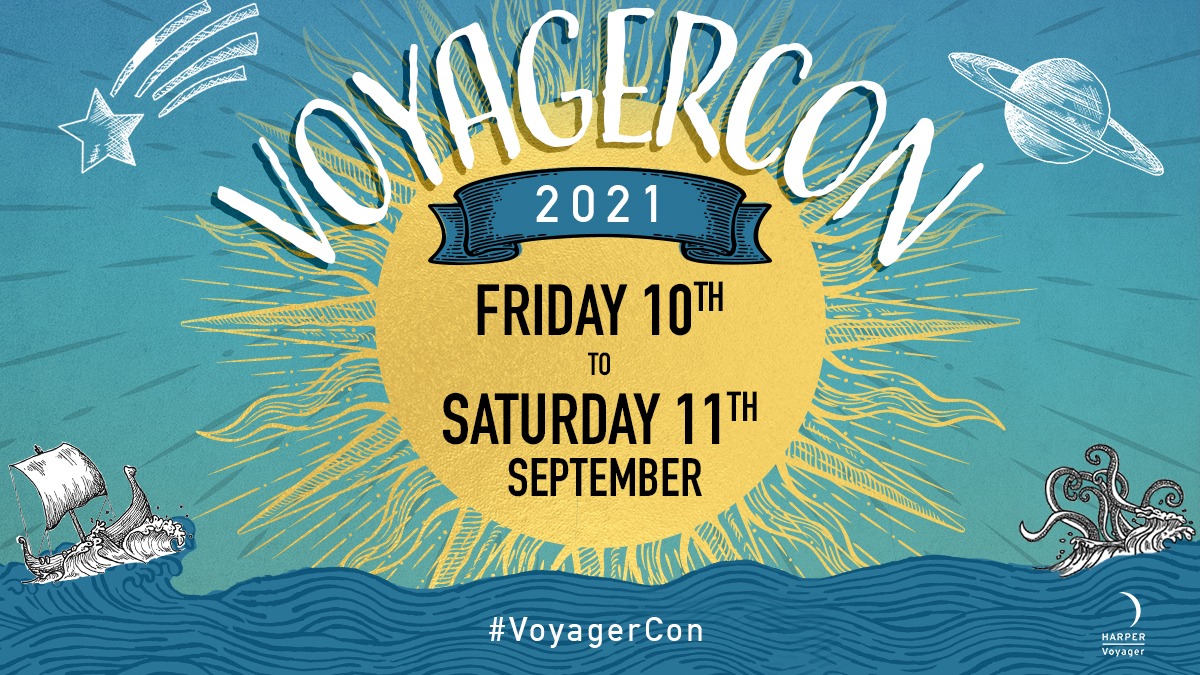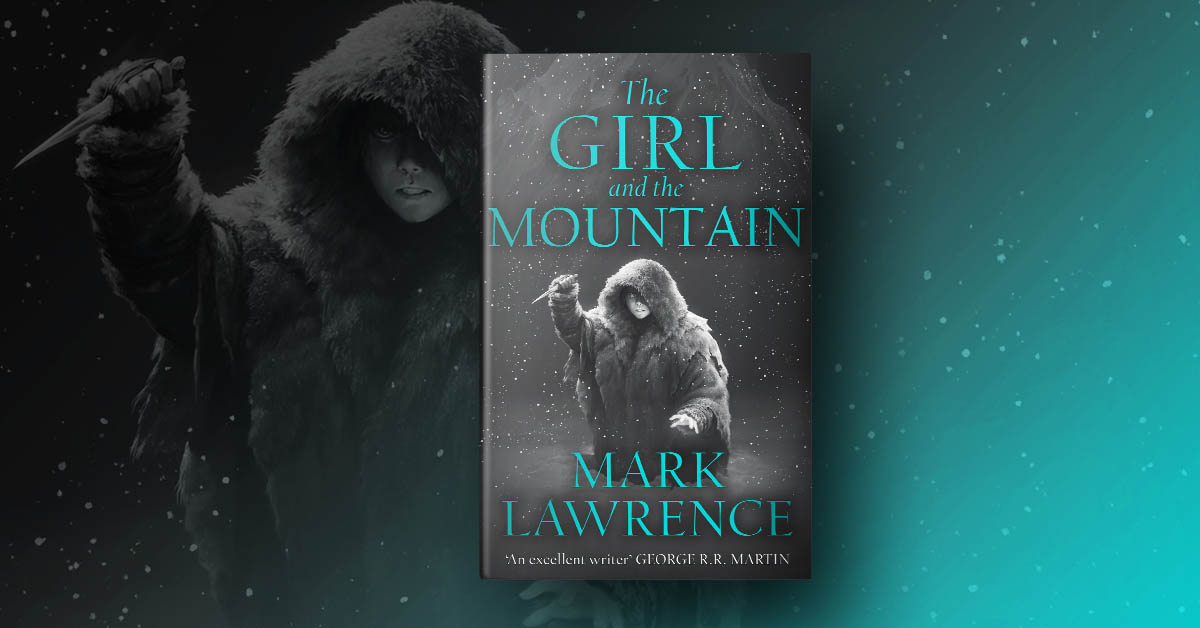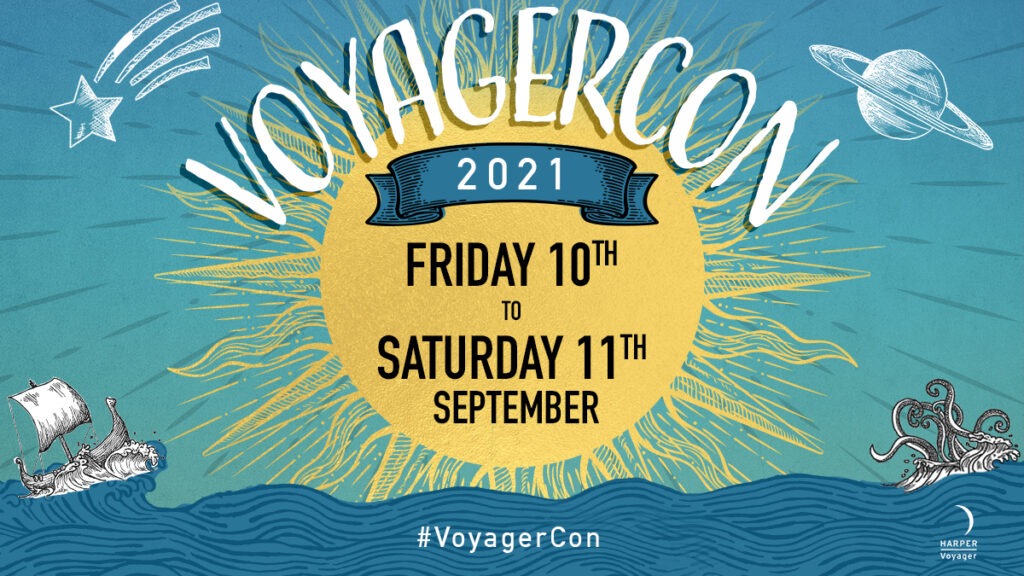
Tonight was our World Exclusive event, sponsored by blinkbox Books, featuring the incredible George R.R. Martin and Robin Hobb in conversation. To sum up the event for those who weren’t able to make it or tune in to the live stream, we’ve invited journalist Stuart Dredge to write about this incredible evening!
London’s Freemasons’ Hall was packed tonight for a joint interview with authors George RR Martin and Robin Hobb about their work, influences and success.
Martin is riding high on the popularity of TV show Game of Thrones, based on his A Song of Ice and Fire series of novels, and with its two books to come the focus of intense speculation from a widening community of fans.
Hobb, meanwhile, is the second pen name of Megan Lindholm, responsible for five critically-acclaimed series of fantasy novels, with her latest book Fool’s Assassin fresh out this month.
The pair were interviewed on-stage by HarperVoyager publisher Jane Johnson, a best-selling fantasy author in her own right, as well as the longtime UK editor for Martin and Hobb. We’ve used “Lindholm” throughout this liveblog, following Johnson, who addressed her as Megan throughout.
Martin was without his trademark hat. “Yes, I sold it for $10,000!” he said, referring to his recent charity auction. “I’ll have to get another hat: hopefully one that no one will recognise me in… Maybe one like the Pope. The Pope has a nice hat! That’d be good…”
Lindholm was asked if she hides behind her different personas, in the way that Martin might hide behind different hats.
“I think everybody has different facets of their personality that they turn on wherever they are, depending on whether you’re someone’s mom or sister or cousin, or volunteering at somebody’s school, or out being a writer for the weekend,” she said.
Martin wondered whether Megan and Robin are different characters. “Different voices for writing: different types of stories I would choose,” she said. “Whenever I have an idea, I always know if I want to write it as Robin Hobb or Megan Lindholm.”
Martin talked about the first stories he wrote – “Even as a kid I was thinking of torture and maiming!” – but noted that he didn’t share them with anyone. Meanwhile, Lindholm remembered her own first effort as a child “writing a story about a black cat on Halloween… The ending did not satisfy me! It probably went out with the next day’s trash…”
Johnson asked what the pair saw out of their bedroom windows when they were young, and whether that influenced their writing. “My bedroom was in the basement!” said Lindholm.
Martin remembered the living room windows, which looked out on Newark Bay, and Staten Island across the water. “I would look at those lights of Staten Island throughout the night, and they were incredibly romantic to me: they were like Shangri-La or Middle Earth,” he said.
Martin sold his first professional story, The Hero, in the summer of 1970, to Galaxy magazine. He’d written it several years earlier in college, as a journalism major who wanted to write short stories and fiction.
“I was always looking for an opportunity to write short stories for other courses,” he said. “I took a lot of history courses, and I would frequently ask my professors if I could write a piece of historical fiction instead of a term paper. Some of them said yes!”
How much did he get paid for it? “$94! That was a lot of money in those days… I was pretty excited,” he said. What did he spend it on? “I don’t remember offhand, but beer probably figured in it somewhere.”
Lindholm talked about her first published work, as an 18 year-old, when she was trying to write for children “under the mistaken notion that writing for children was easier than writing for adults”. She got $5 for her first story, sold to a sunday-school magazine.
“I had finally cracked the code of how you submitted a story to a magazine. That was a pretty immense piece of knowledge that I had acquired,” she said.
Martin talked about aspiring fiction writers. “It’s not a career for anyone who needs or values security. It’s a career for gamblers! Every time you write a book you’re throwing the dice again and you don’t know whether it’s going to crash and burn or whether it’s going to be a big success. Most books, of course, are in between,” he said.
Martin admitted he’d had dark times when he thought his career was over, and he’d never sell another book. “But I never doubted that I would write another book. That’s the real thing that distinguishes a real writer from the false ones. Even if you can’t sell the books, you’re gonna write them anyway, because you’ve got these stories inside you,” he said.
Lindholm added that the author’s life is really about being alone in an office with a keyboard or a pencil and paper, and “doing the writing, because you want to write” – not about the signings and cover artwork and other things that come with the profession when it goes well.
“It’s not all book launches with champagne and interviews by the New York Times or the London Times, as the case may be. It is a casino, and sometimes someone like me gets lucky, and you get the other end of it,” he said. “The main thing, as Robin says, is the stories: all of the other stuff is fun, or not fun as the case may be, but ultimately you want to get back to that room and to your people.”
Lindholm has described writing as “chasing butterflies and trying not to crush them” before, and Johnson asked her to expand on the idea. “I get an idea, I can see it, and it’s absolutely beautiful, and I start writing it and I get it trapped on the page and it’s not what I meant to write,” she said.
“And the rewriting is arranging the little body and trying to make it look nice! I enjoy rewriting much more than I do doing first drafts. It’s really hard, but rewriting, you at least have something to work with, and you can make it better. First drafts are very hard for me.”
Martin agreed, saying one of the key bits of writing advice he got when young was not to be discouraged, when putting an idea down, that it wasn’t the “platonic perfection” that existed in his head – but to grit his teeth and do the rewriting. “You must finish what you write. I made myself start finishing these stories no matter how much I loathed and despised them. And by the time I’d finished them, I usually liked them a little better,” he said.
“It’s still hard. If there was just telepathy… There’s part of me that loves words. I feel pleasure when I come up with a great line of dialogue, or a description of a castle or a sunset… but sometimes it feels like you’re trying to drive a nail with your shoe, and boy you wish you had a hammer!”
Lindholm said her biggest doubts about her writing don’t come when faced with a blank page, but five minutes after she “hits send” after finishing it. “That’s the toughest day: that immediately after the book is finished the first time. That’s before the editing,” she said. “Getting it off the word processor and sending it out is the beginning of a different kind of work for about a year.”
Johnson said that Lindholm is always polite when fielding feedback on her work, but wondered if she’s ever “going off somewhere screaming” before replying. Lindholm noted that she’s worked with Johnson for 27 years – “nothing short of miraculous” in the publishing industry – so she doesn’t take offence. “When both of my editors say to me ‘this is bad, you need to change this’, I ignore that at my peril,” she said.
A Song of Ice and Fire was originally conceived as a trilogy, and Martin said he had no idea of how vast the series and its world would eventually become. “The tale grew in the telling!” he said, referring to the process of discovering new sub-plots and characters he wanted to explore, while writing.
“Suddenly the stew is much richer, but it also takes much more bowls to fill it up. Ultimately I don’t think it matters artistically, at least. It obviously matters to my publishers and fans. It doesn’t matter how many books it is, because it’s one story.”
Lindholm talked about her own series: “You come up with details and other characters who step up onto the stage who say ‘I’m a part of this, I want you to tell more about me’. And you start exploring these extra threads that go through the story,” she said.
Johnson said that both Lindholm and Martin are “really nice people” who treat their characters dreadfully. Are they both secret psychopaths, she wondered? “I could’ve written a story about a really well-adjusted family,” laughed Martin. “Conflict and danger and all of these things are the strong spices that we want. When they occur in real life we hate them, but they’re part of what makes life life, as opposed to unending days of boredom.”
Lindholm joked that killing off characters can be a simple way to simplify the storyline when it gets too complicated, but noted that if she’s writing a character she truly dislikes, readers would find them boring. “Sometimes I’ve been tempted to do some weeding to simplify a plotline, but never because there was a character I disliked,” she said.
Martin added that his books are structured with a very limited third-person viewpoint, switching between the various main characters to tell the entirety of the story. “That does somewhat limit who I can kill, because sometimes one character is my only eye in a particular location or camp,” he said.
“If I kill them off, I’m going to have to introduce another character in that camp.” He noted that the alternative is the “conveniently-arriving raven”, sparking a big laugh from the audience.
“You’re both very good at killing, I have to say,” said Johnson, praising the pair’s visceral and violent fight scenes. “I’ve killed probably more chickens than George has characters, but it’s a whole different feeling when you’re doing that kind of messy slaughter, especially when it’s a chicken you’ve known all its life,” said Lindholm. “It certainly gives you a different perspective.”
Lindholm talked about what she read when growing up: the first books she loved were old fairytale books belonging to her father – “They were big heavy books, when you opened it, you had a lapful of book!” – before moving on to Treasure Island, Robinson Crusoe, Kipling and Shakespeare. “That was my rather strange foundation, and when I did finally encounter the Lord of the Rings, it was a startling revelation,” she said.
Johnson described Tolkien’s series as the elephant in the room for all three authors on stage, but Martin preferred to talk about Catholicism and confirmation as an influence. “We still have the heritage of an age when children grew up a lot faster, and were expected to take on adult responsibilities,” he said.
Does either author ever dream about their characters and their worlds? “No, not at night,” said Martin. “I do a lot of writing with daydreams, as we used to call them… Also on trips. Back in the 1970s, when I was living and working in Chicago, I had about a half-hour ride on the elevated train… and I would sit there and watch the scenery go by, and start thinking about stories and characters. I’m staring out, but I’ve seen the scenery a million times before, and my mind is racing ahead of me. I still do that when driving.”
Martin continued: “Writing is weird. I know I don’t solve problems with my rational brain, the way people solve problems in life,” he said. “It’s absolutely no good with writing. ‘I’ve written myself into a dead end’ so I abandon that character for a little while. Fortunately I have a lot of characters, so if I run in to problems with Tyrion, I can switch to Aria…”
Lindholm said she’s never dreamed about her own characters, but she has incorporated dream territory into her books: dreams she had that were peculiar and/or disturbing have been incorporated into her books as scenes. Martin chimed in with the “Raymond Chandler solution: if you get stuck, have someone come in the door with a gun!”
A crossover question: Martin was asked if he was “old blood” in Lindholm’s world (well, Hobbs’) what animal would be bond with? Wolves, obviously. “We’re both wolf people here!” he said. “My wolves are bigger…” Lindholm was asked a companion question: who would she prefer to win the Iron Throne in A Song of Ice and Fire. “Right now I’m tending towards Jon Snow,” she said, eliciting a big “ooh!” from the audience.
Johnson asked Lindholm about her fascination with secret passages, and heard that it may go back to a childhood trauma when she was living in Berkeley in California, getting shut in a stairwell leading down to the basement. Martin was asked about his own fascination with tunnels. “What can I say? They’re cool,” he said. “I do actually like caves. It’s the last true realm of exploration on planet Earth, where a theoretical possibility exists that you could crawl through a hole and be in a place no other human has ever seen. I find that tremendously exciting.”
Both authors were asked if they’d have done anything differently if they’d known how successful their work was going to be, would they have done anything differently? “Start writing sooner is what I’d say to my younger self,” said Lindholm. “I would have done all my promotions for Game of Thrones in disguise,” quipped Martin. “The being a celebrity is something that I have mixed feelings about: the loss of privacy and the headlines: they drive me a little nuts. It never ceases to be surreal… That’s what I’d do differently, I’d be anonymous. I’d be J.D. Salinger. No I wouldn’t be J.D. Salinger, I’d want the books to be published.”
Lindholm was asked about why she went back to her Fitz character for her latest book. “I had always intended to go back to Fitz,” she said. “A number of astute readers have written me letters at some point saying ‘I see this, and I see this, and I see this…’ So some readers knew eventually that yes, this would come… In the end I decided to write this story as I had originally conceived it: there’s a huge foundation there with all kinds of hooks and hints and seeds that will suddenly become trees, and I didn’t want to abandon that.”
Martin was asked how he creates such exotic and beautiful names for his characters. “Names are hard. There’s no easy answer to that. I have a library and have for years of What To Name Your Baby books, even though I’ve never had a baby! And I’m always picking up new What To Name Your Baby books,” he said. But he pooh-poohed online fantasy name generators that spit out 50 names at a time.
“They all turn out to be Grisnopple!” he said. “Maybe I’ll use Grisnopple for the right character. A lot of fantasy names are too much to me. They’re too difficult to pronounce. I wanted the flavour of medieval England… English history is all Henrys and Edwards. Occasionally a Richard sneaks in. Whenever you have a Prince of Wales with an odd name like Arthur or Eustace, you know they’re not gonna make it!”
To read tweets and see photos from tonight’s event, check out the hashtag – #GeorgeandRobin


